Individual project in english, free topic
Interveners:
- David Morin-Ulmann, PhD in Sociology
- Céline Gallen, Marketing Educator-Researcher
- Élise Auger, graphic designer and independent artistic director
- Guillian Graves, Research and Innovation Designer
Food innovation project with multidisciplinary research (sociology, marketing, history, etc.)
For this study project, I got interested in the overfishing problem. From the observation of an alarming situation, I wanted to find alternatives to overconsumed fishes (salmon, tuna, cod, prawns). And it was in the course of my research that I realized that in France, some varieties were forgotten or prejudiced even though they had real environmental potential.
This is the case of cephalopods (squid, octopus, cuttlefish) and more particularly squid. Perceived as "bland", "rubbery" and "difficult to prepare" it is nevertheless a species not in danger, that has a rapid reproduction with a high rate, a short life-cycle, a fishing technique that does not generate incidental catches and squid even has interesting nutritional qualities.
"Through this project, I do not seek to encourage the overconsumption of this species but simply to make it more appreciated. Getting consumers to vary their diet would help to restore a balance between underconsumed and overconsumed species."


The project was divided into several phases:
A first phase of research through the setting up of interviews with experts, the elaboration of a bibliographical documentation, field observations but also first experiments with calamari.
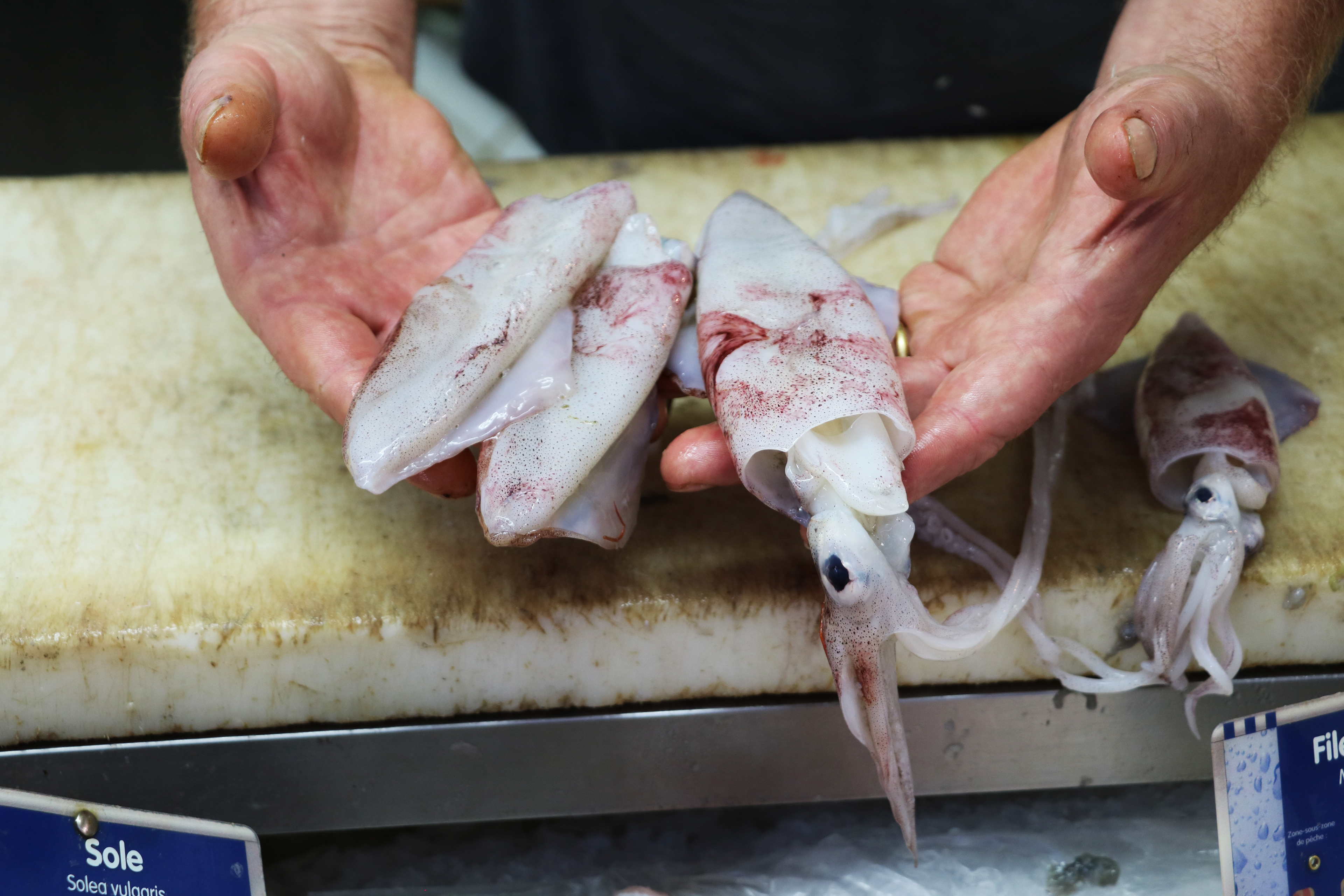
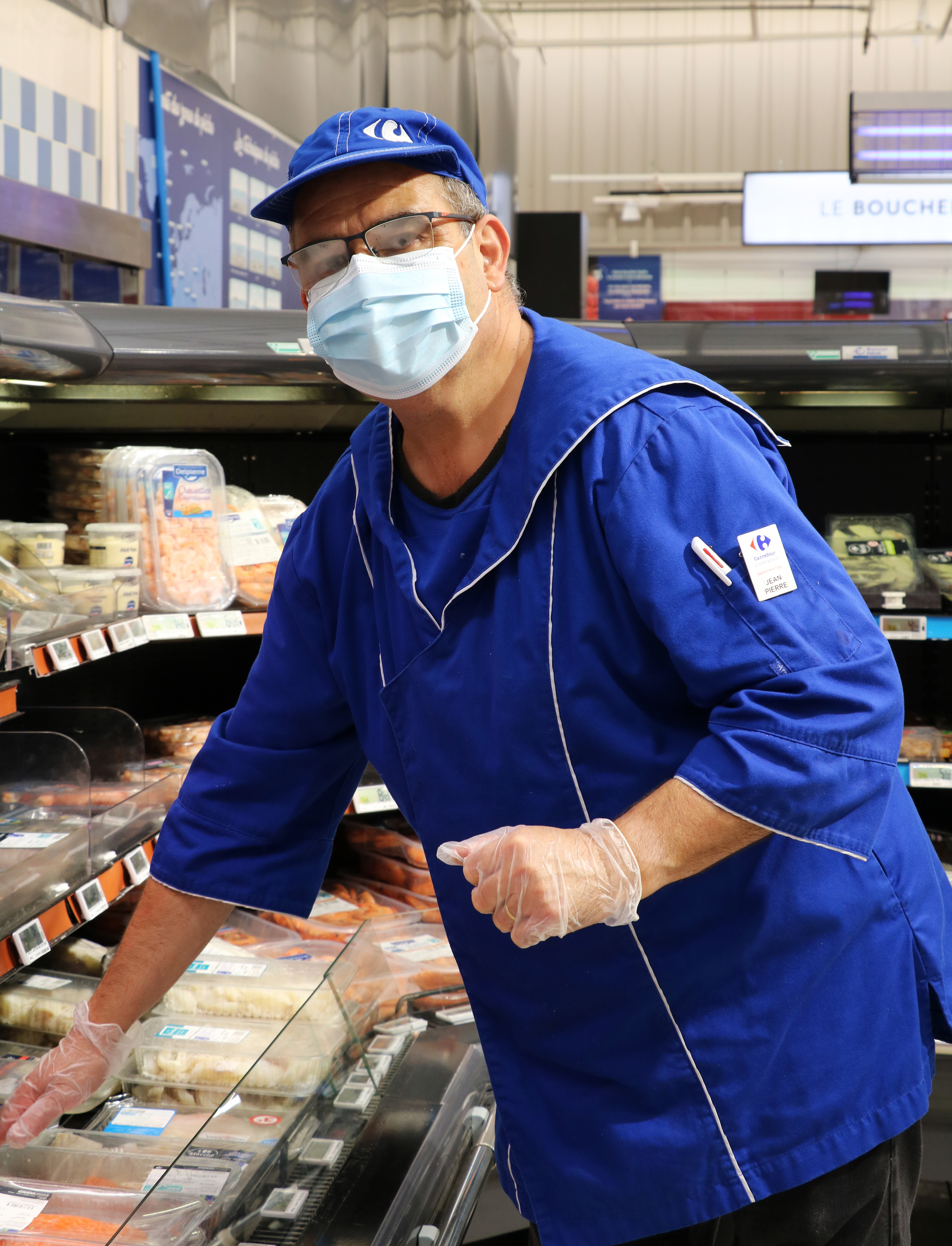
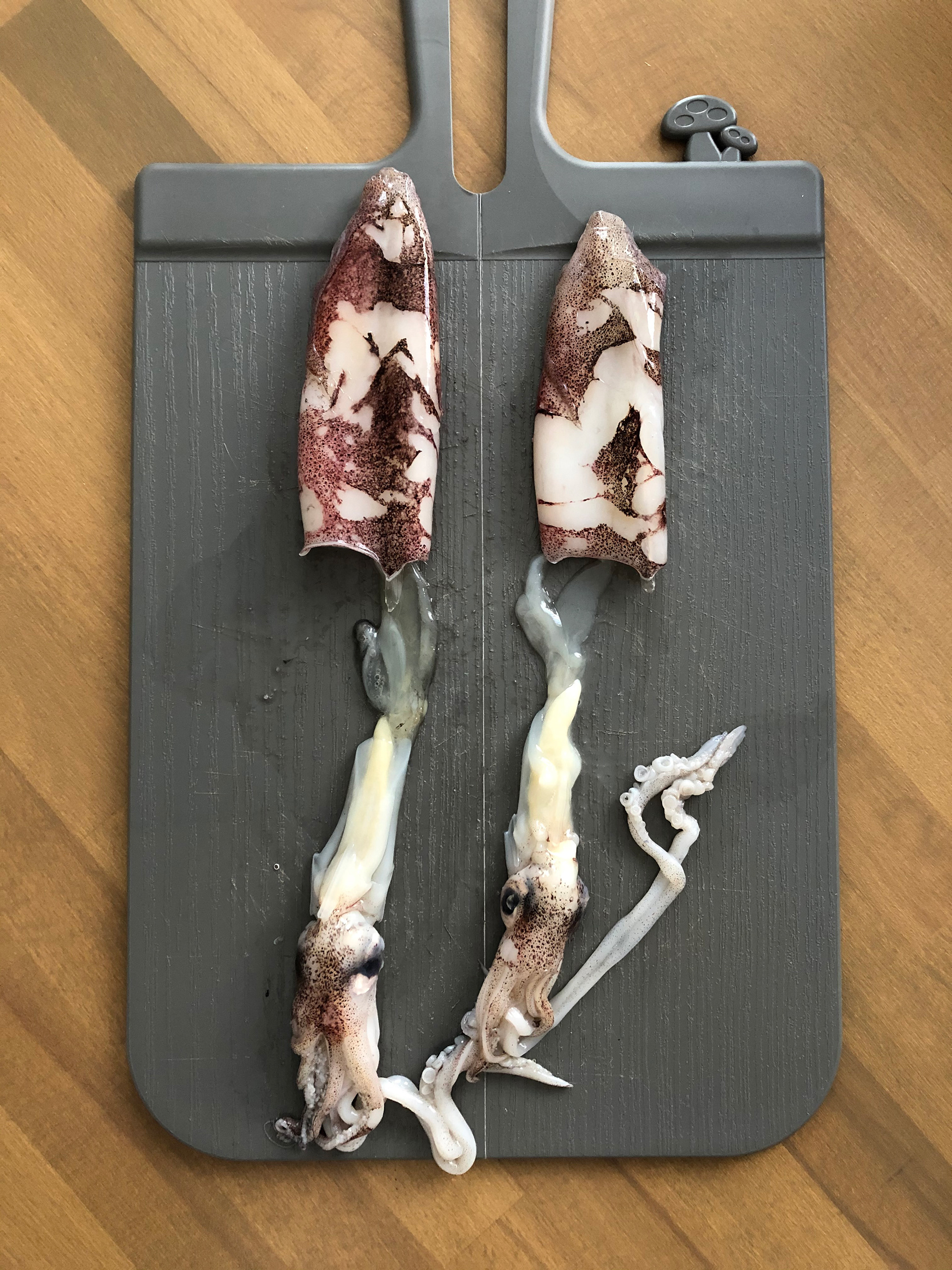
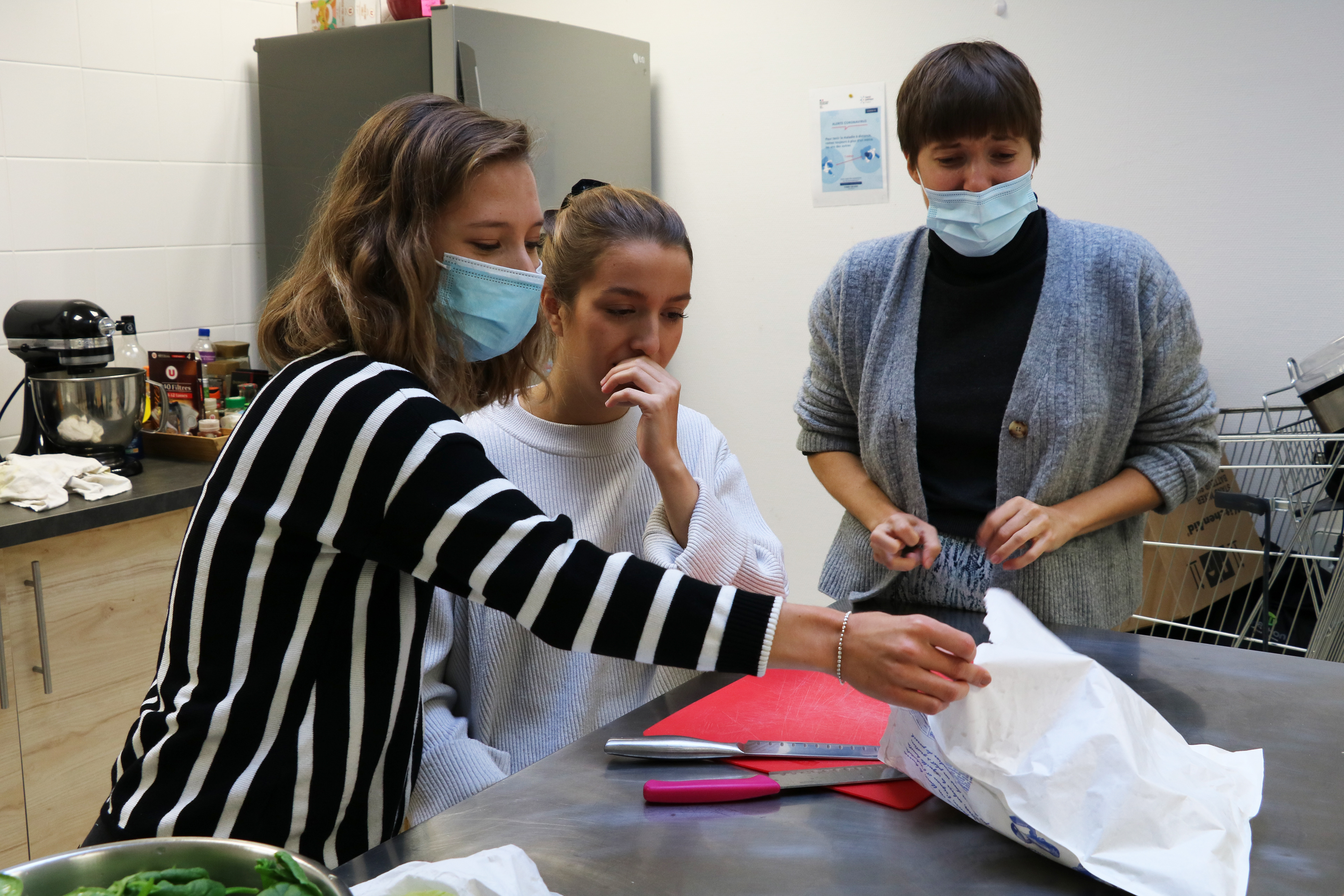
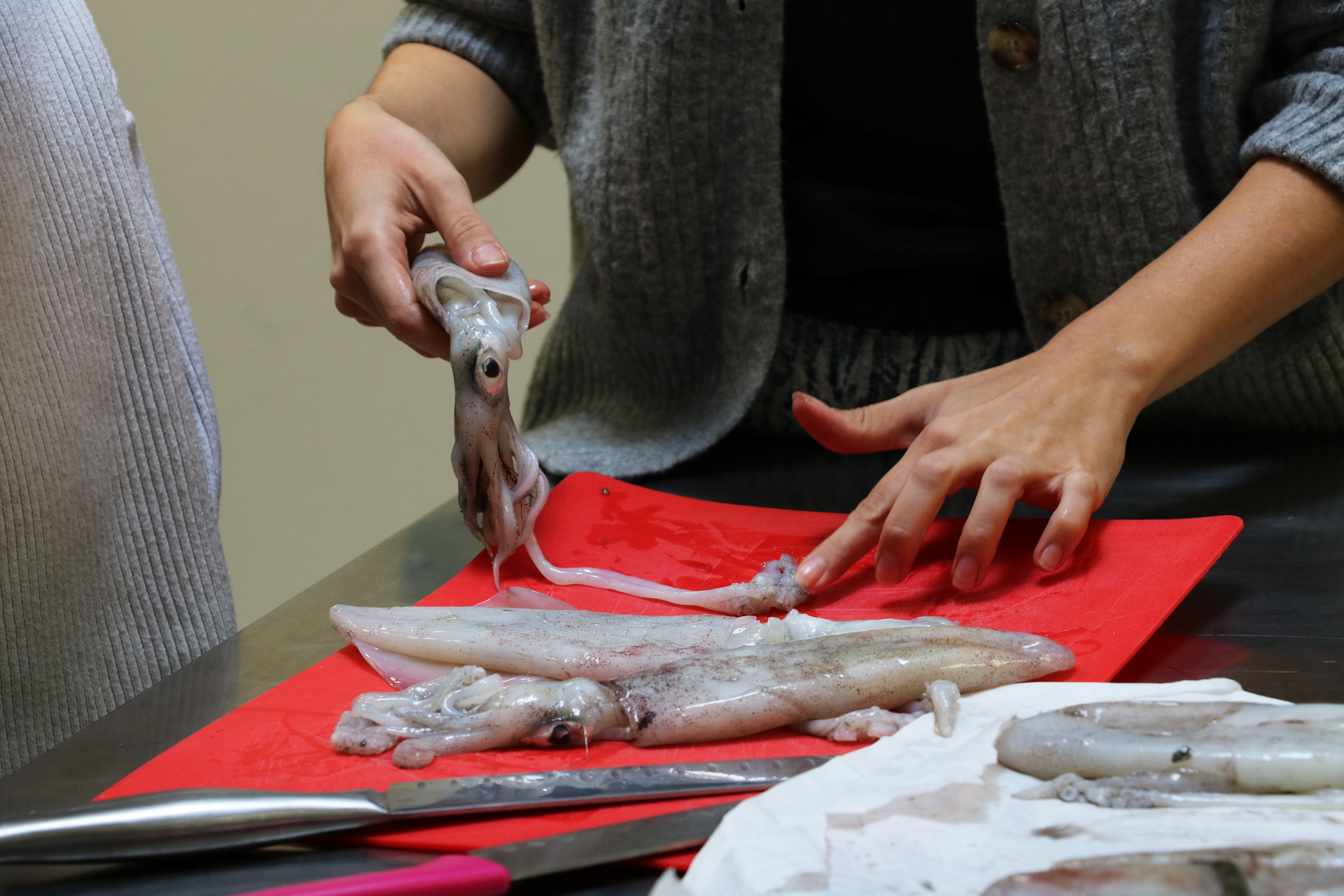
"I had to surround myself with many specialists and users, to get out of my comfort zone. It wasn’t easy to gain confidence in myself and my project, but it made me grow."
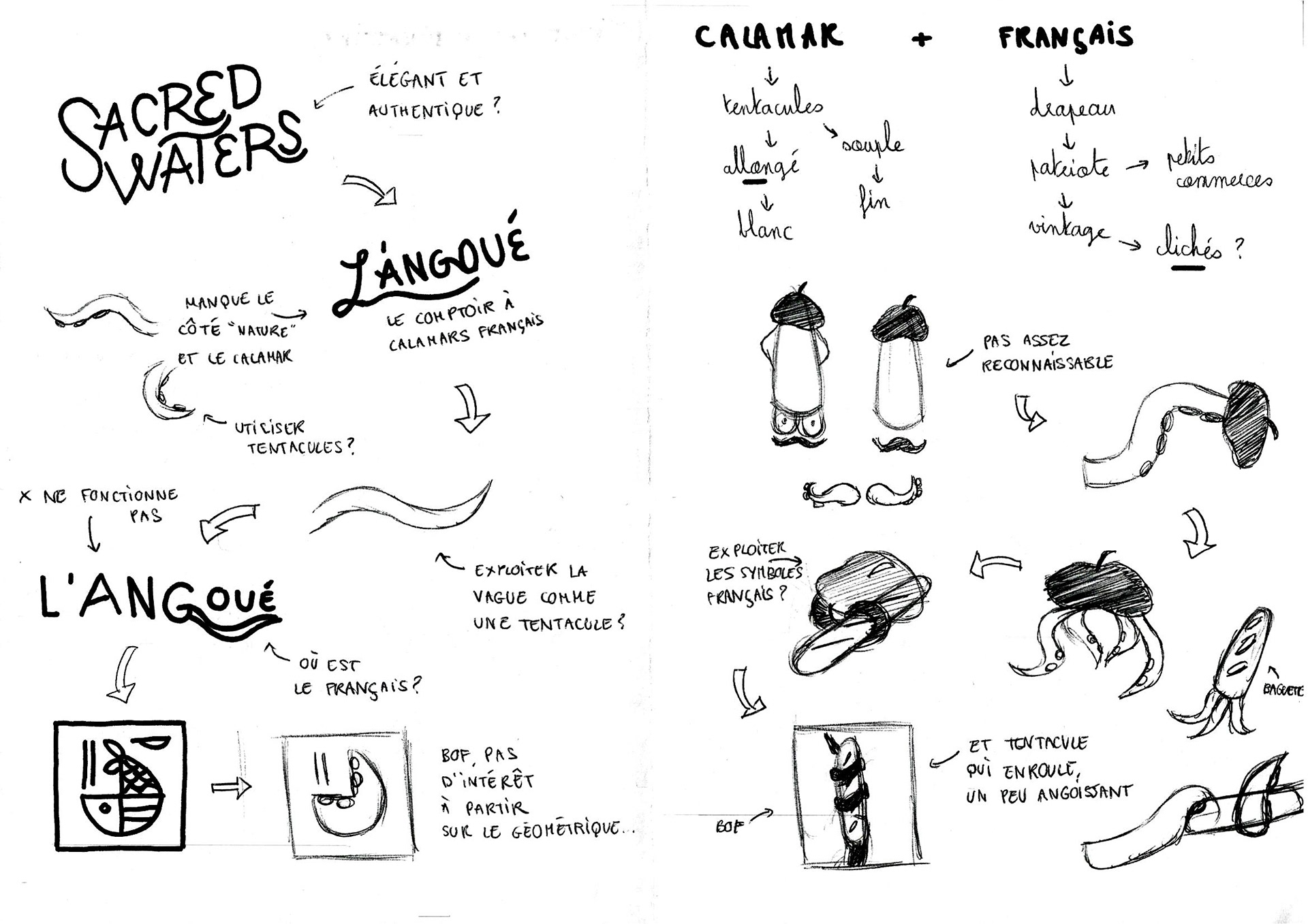
The second phase consisted of the creation of concepts from a positioning, resulting from research.
Finally, the third phase was focusing on the final project development.


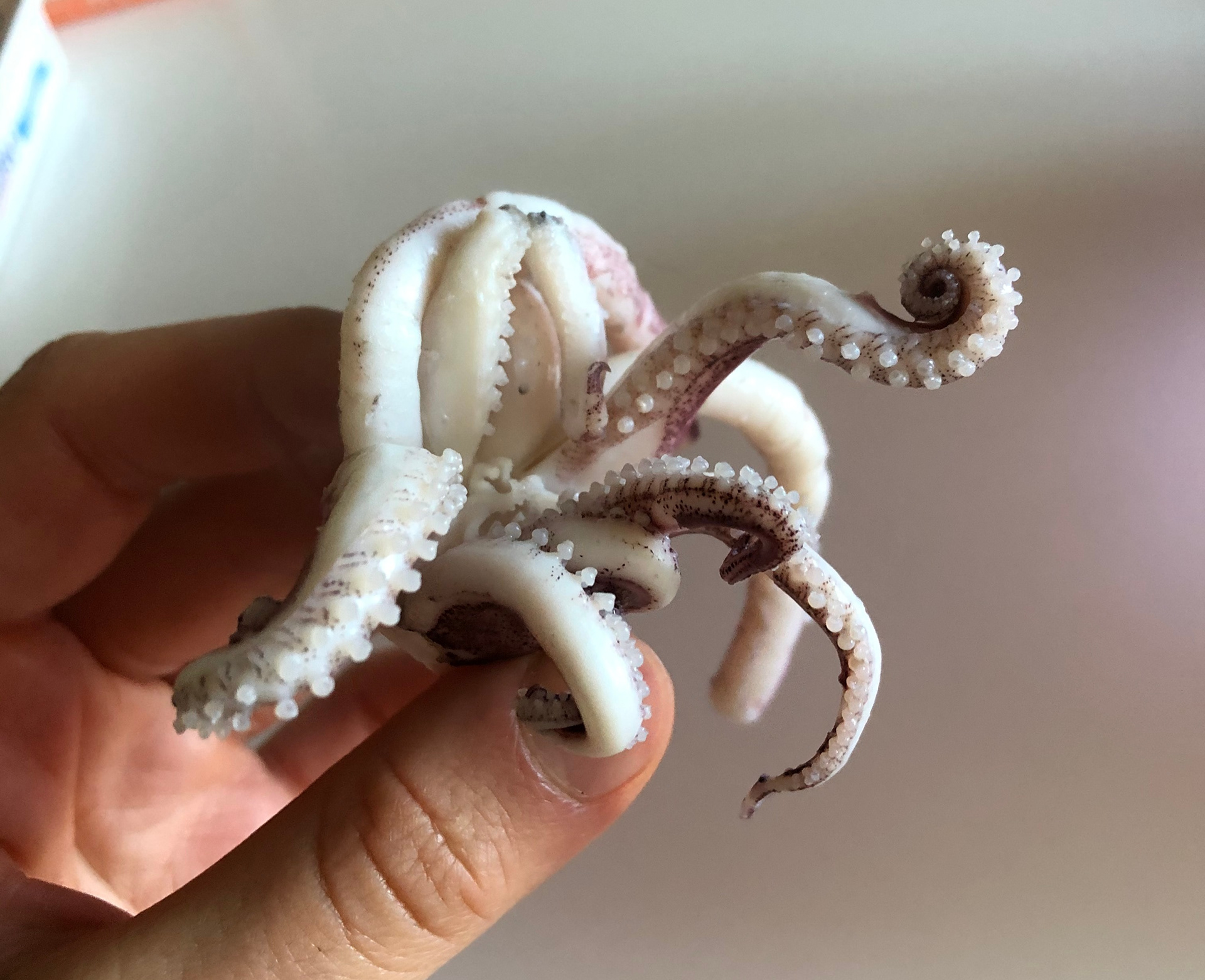
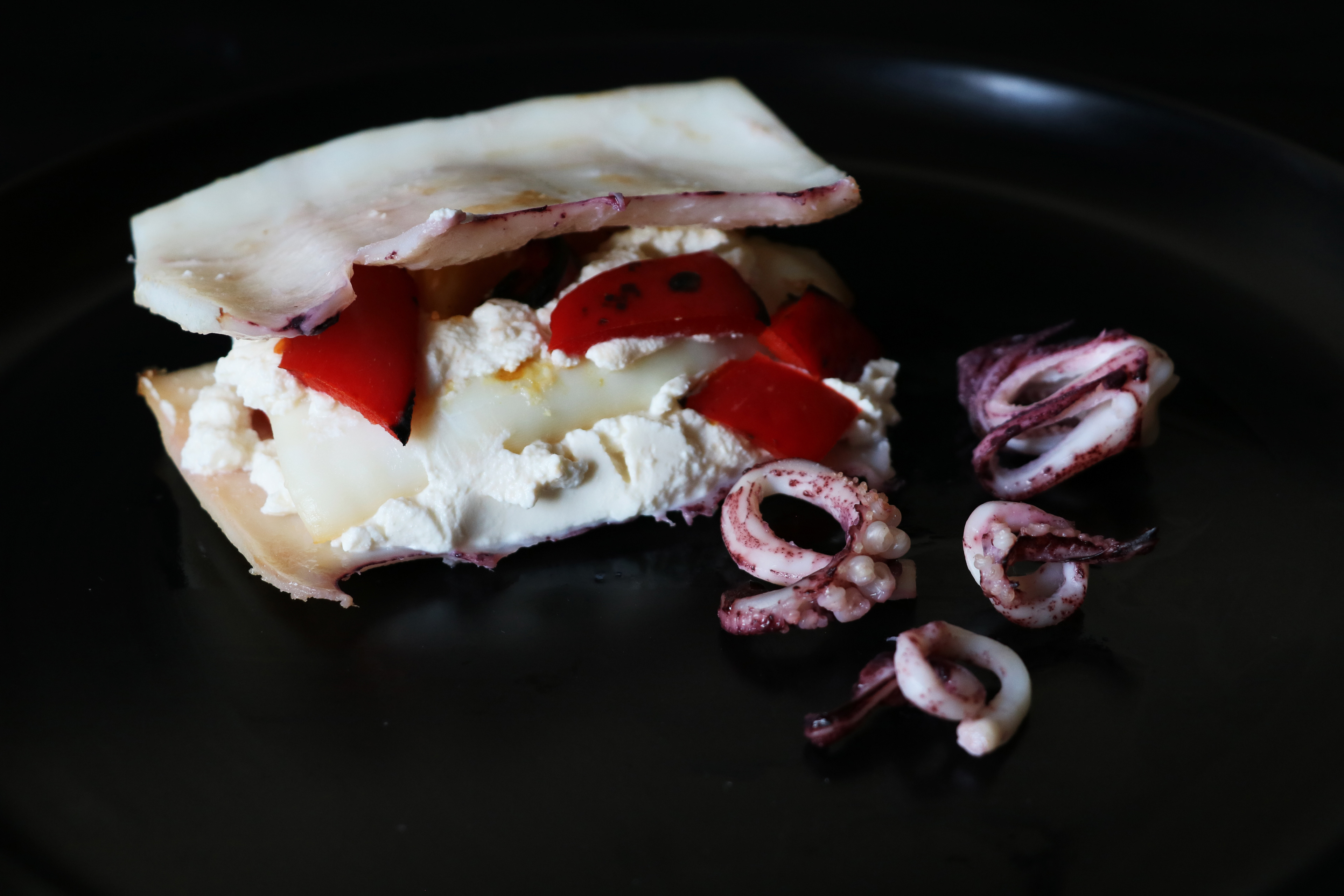
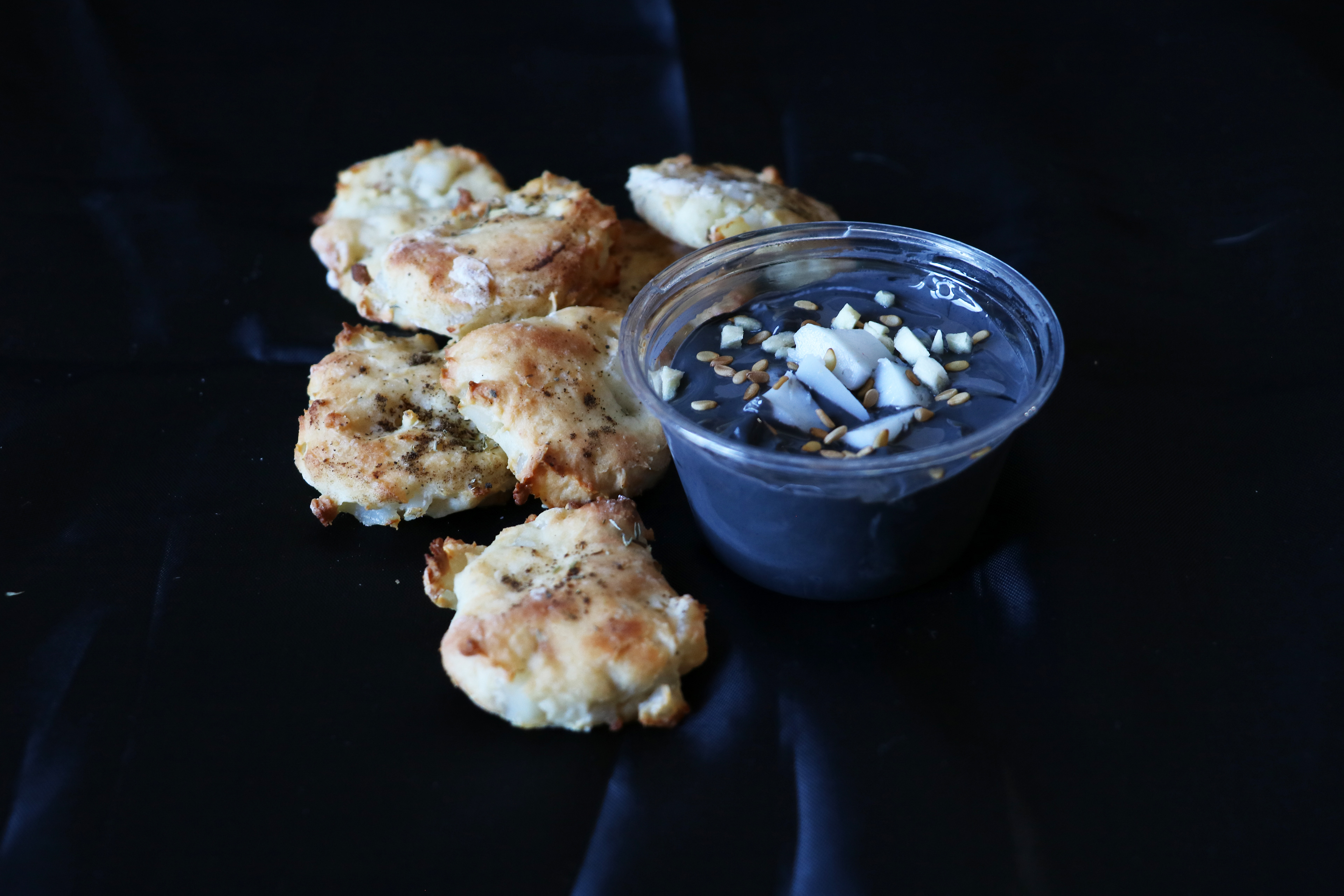

“To improve the image of squid in order to diversify our diet, I created Céphormidable.”
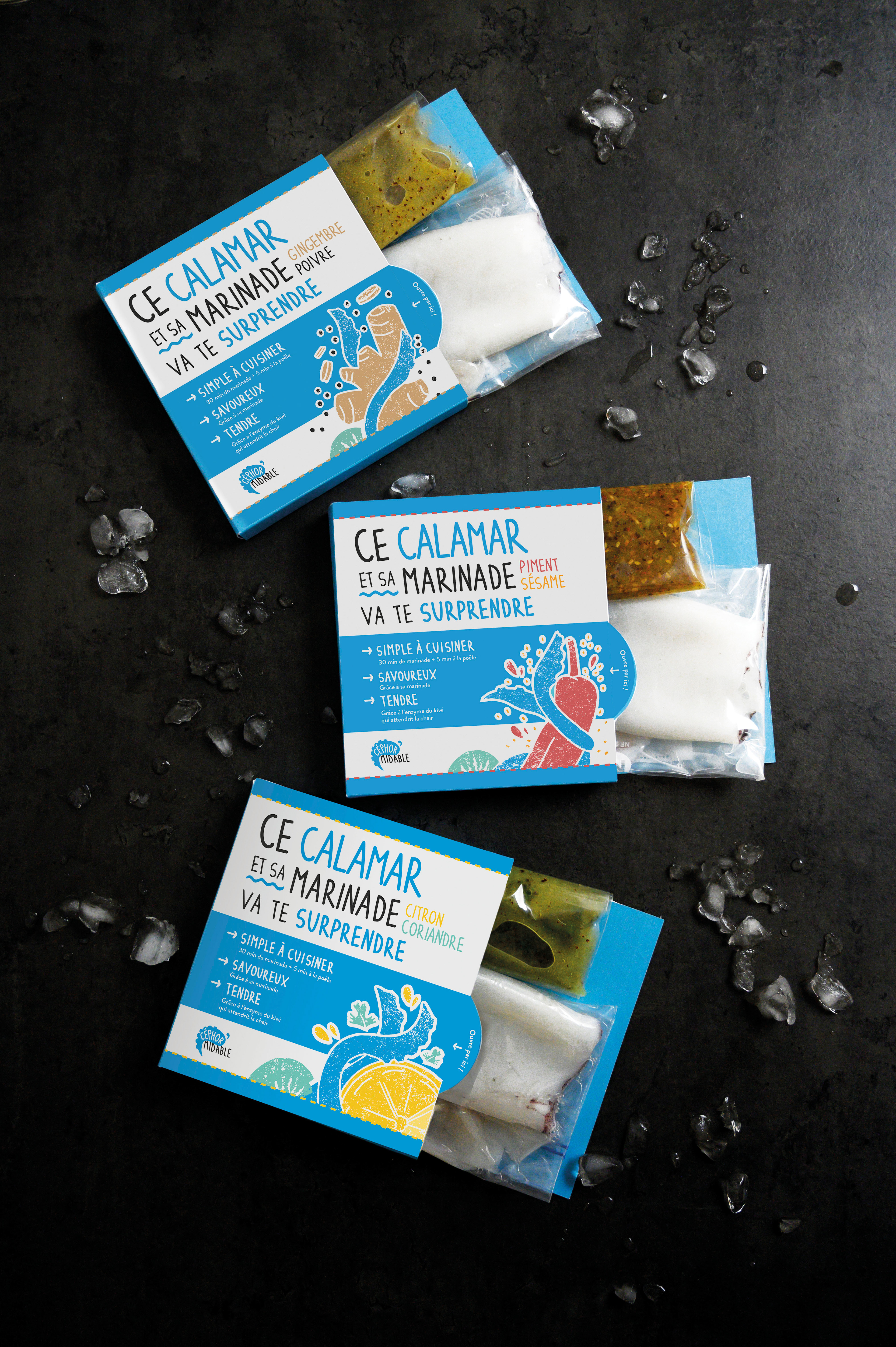
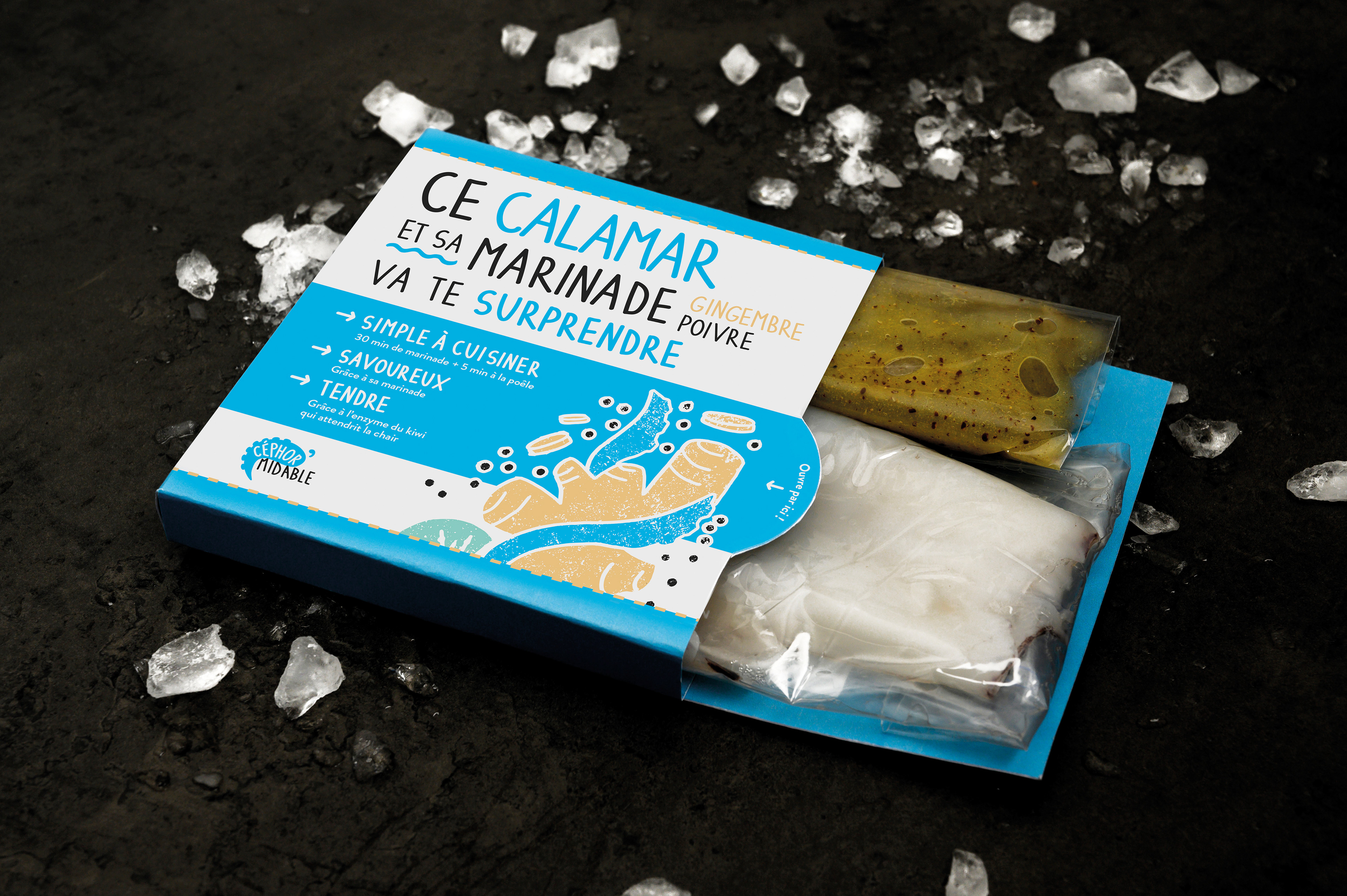
"Céphormidable" is the name of a brand of products based on cephalopods for a sustainable consumption. This first range of products, therefore, focuses on squid and offers it fresh, pre-cut, accompanied by a kiwi-based marinade.
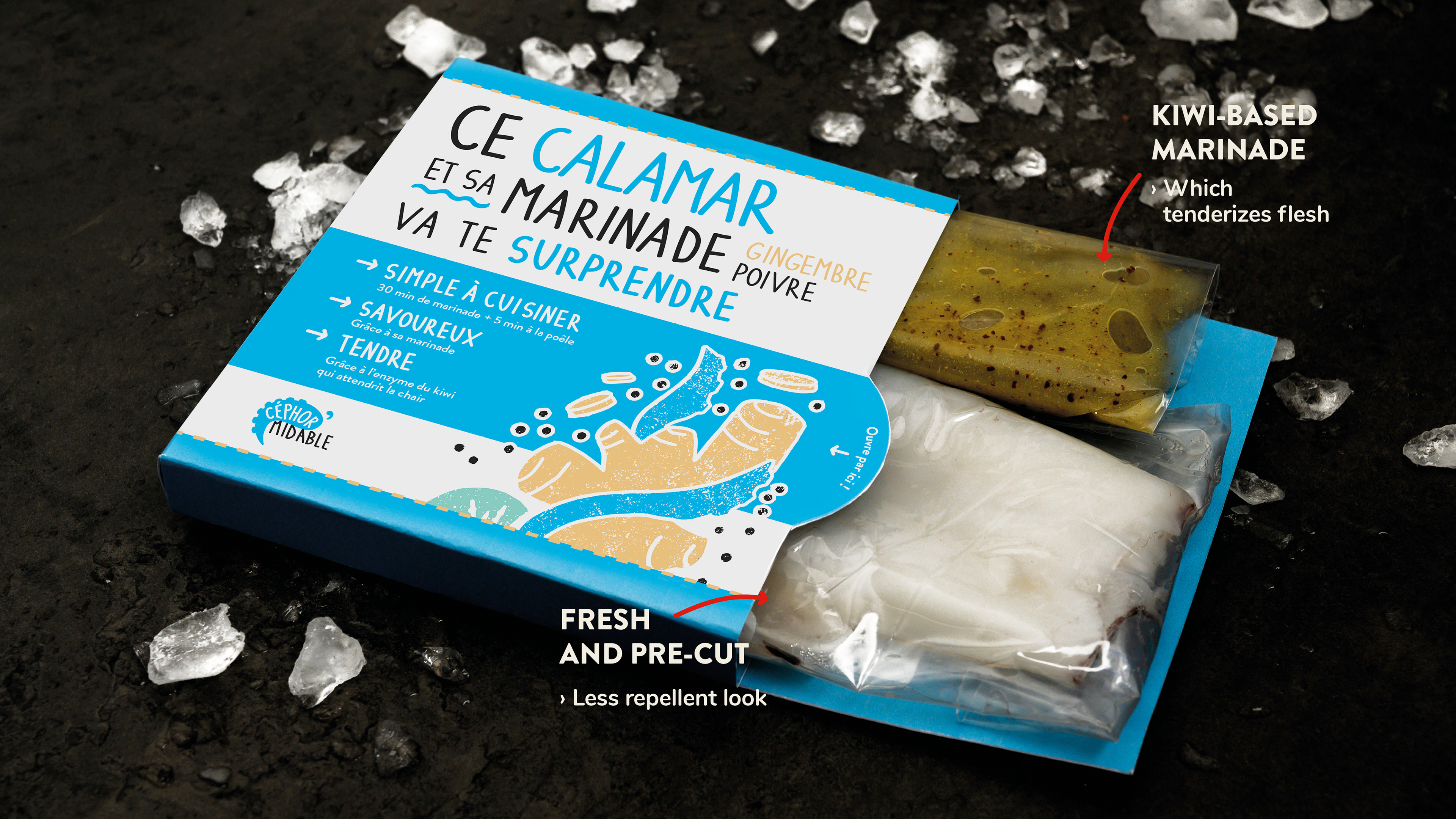
This proposal makes it possible to counter 3 major prejudices on squid:
1. Taste (enhanced thanks to the marinade)
2. Texture (tenderized thanks to kiwi enzymes)
3. Preparation (simplified by the pre-cut and steps indicated inside the pack)
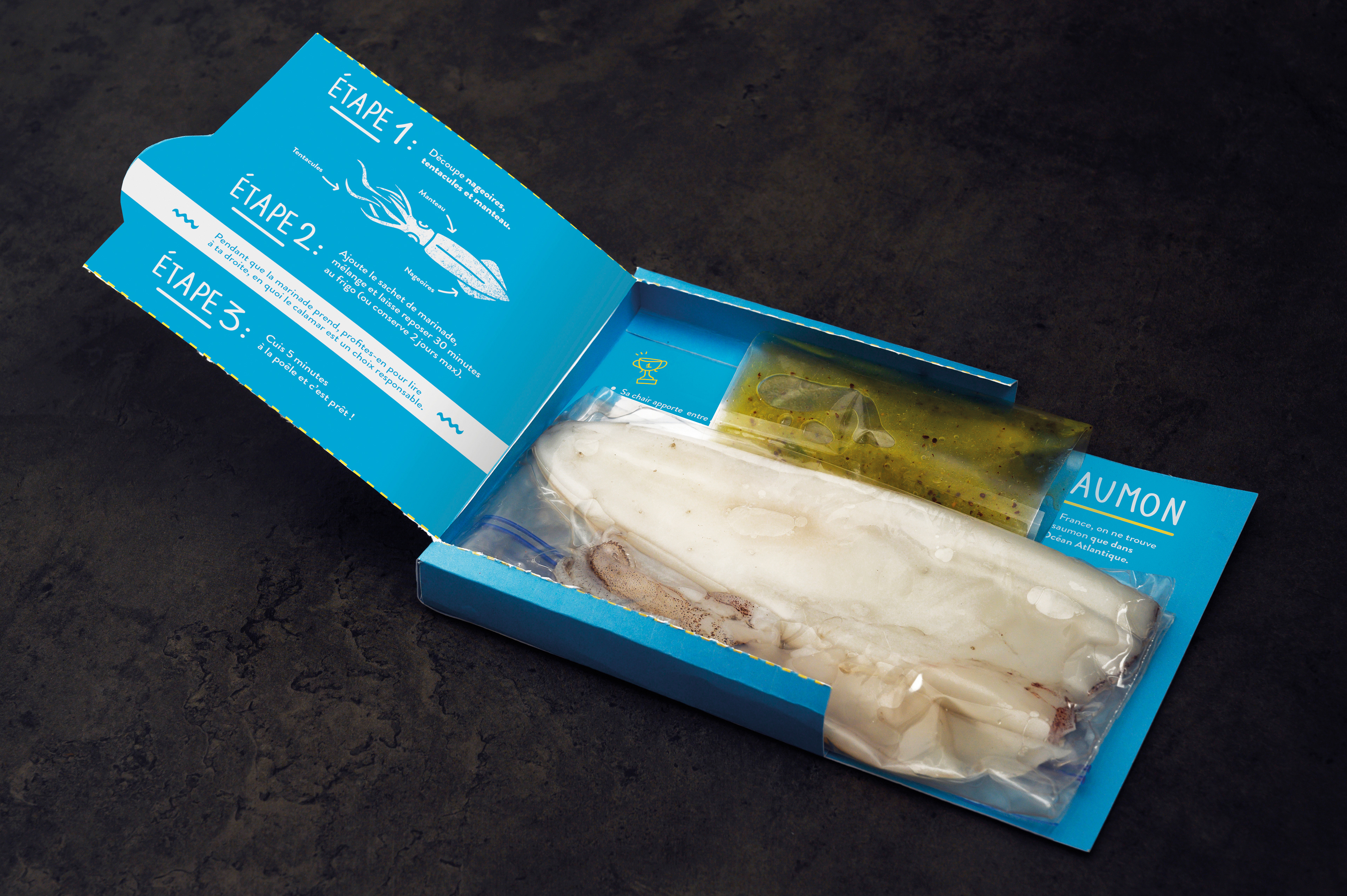
The choice for a fresh product answers to the natural expectations of the consumer but also to educate him on the squid appearance and its various parts. As for the pre-cut, it counters the "rejecting side" of the whole squid (big eyes, sticky texture, tentacles).
The marinade recipes are declined according to the seasonality of the ingredients available during the squid one (August - February). The product will be marketed in supermarkets but only during this period.

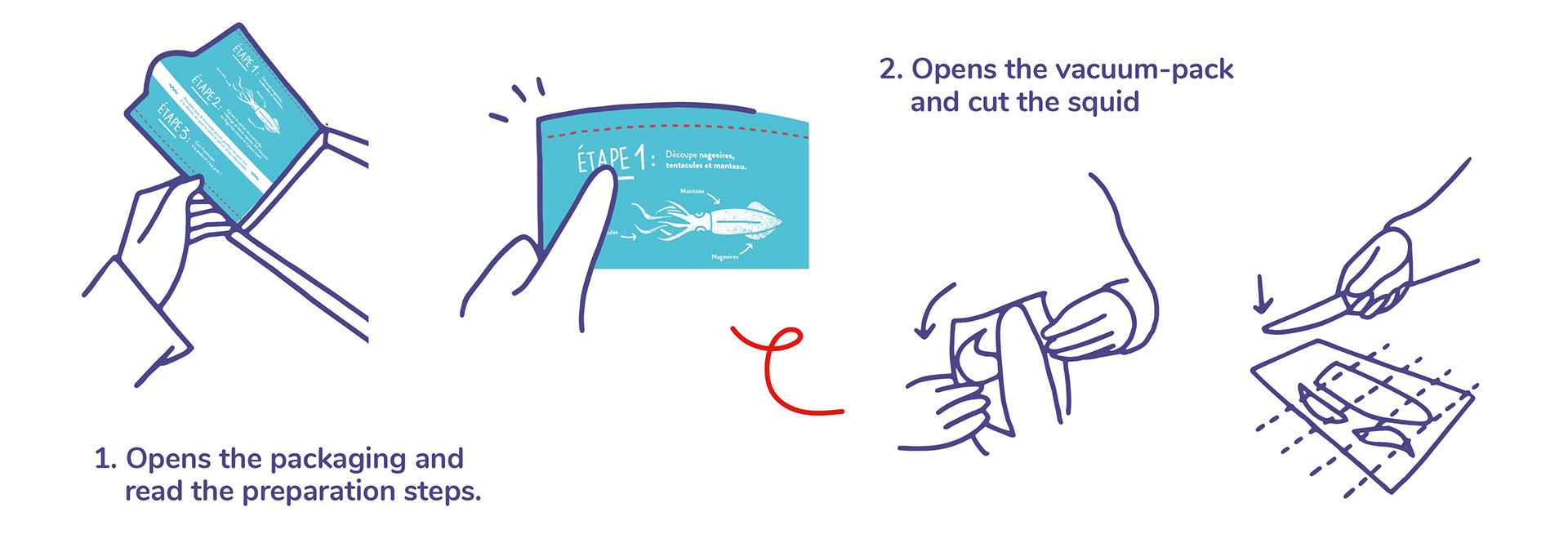
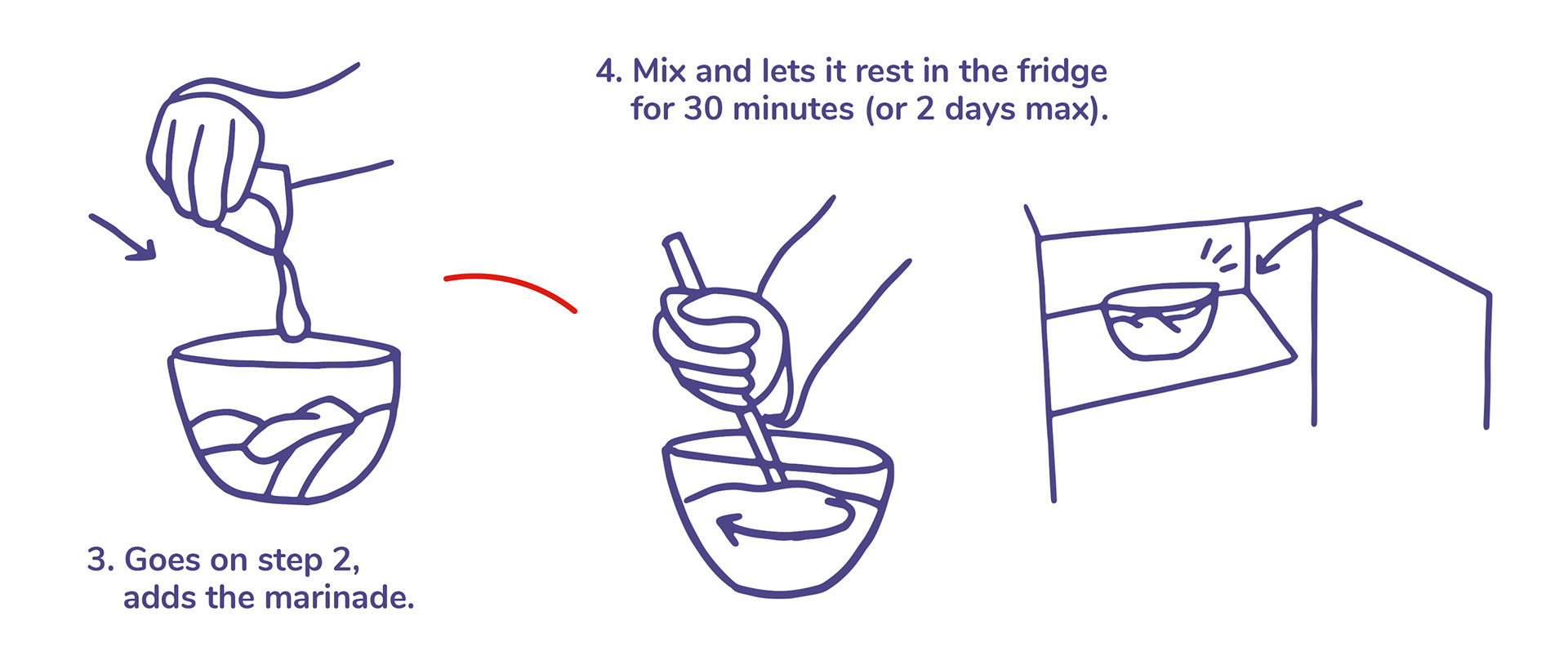

Regarding its use, the consumer opens the packaging, discovers the preparation steps written on the open panel and follows them step by step. During the marinade resting time, he will be able to read a content in the bottom of the package that compares squid with salmon. In a few points, the consumer will be able to become aware of the difficult situation of salmon and the interesting alternative that squid presents.

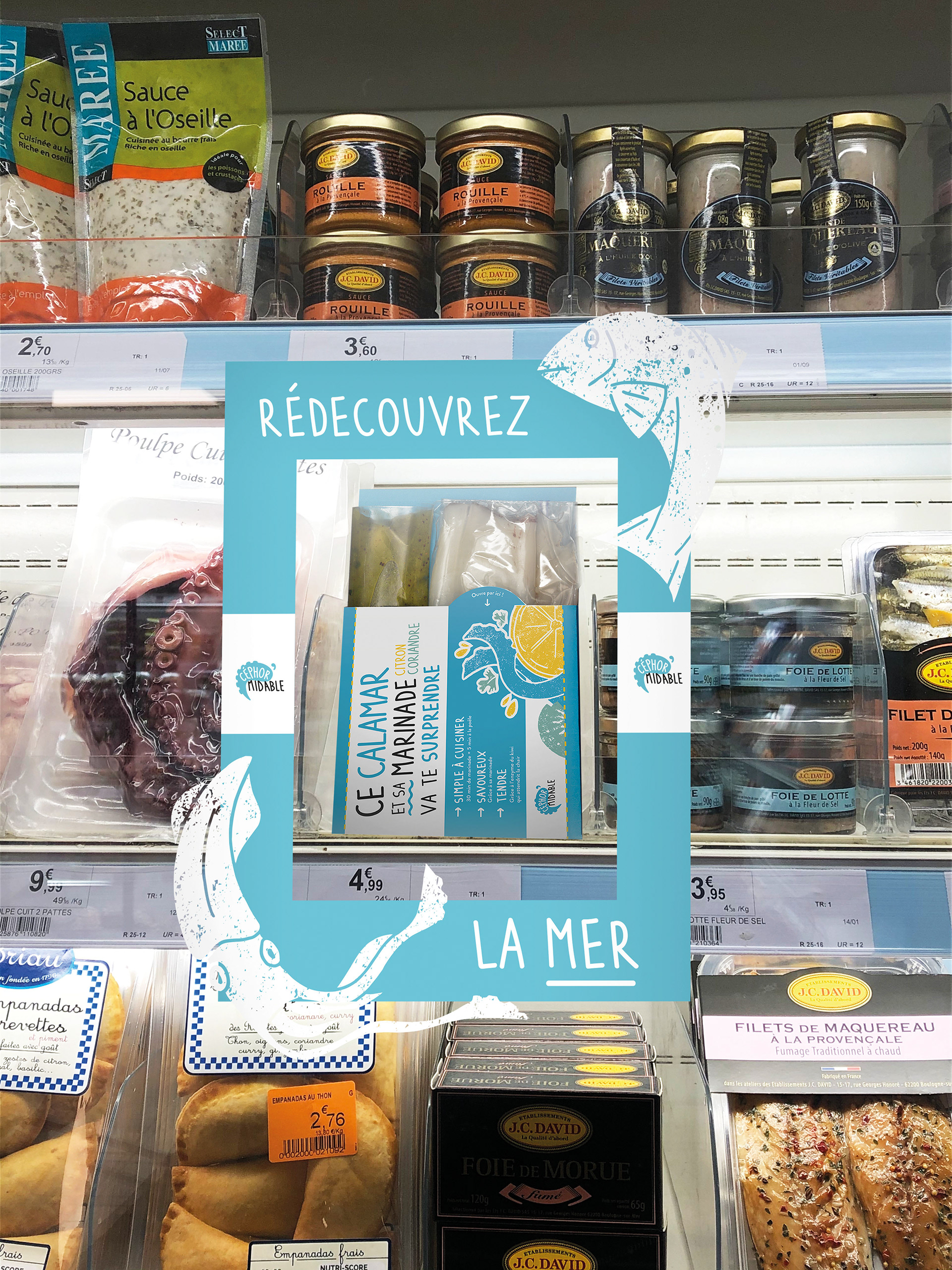


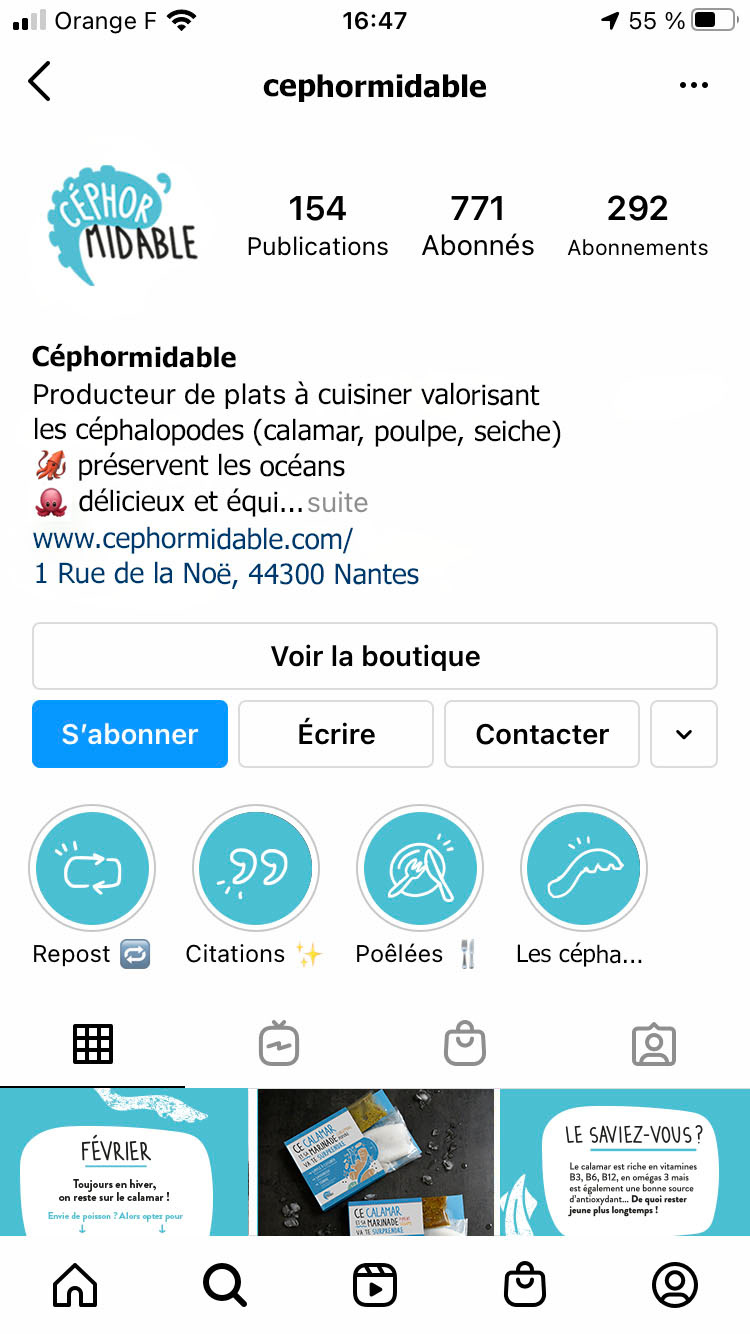
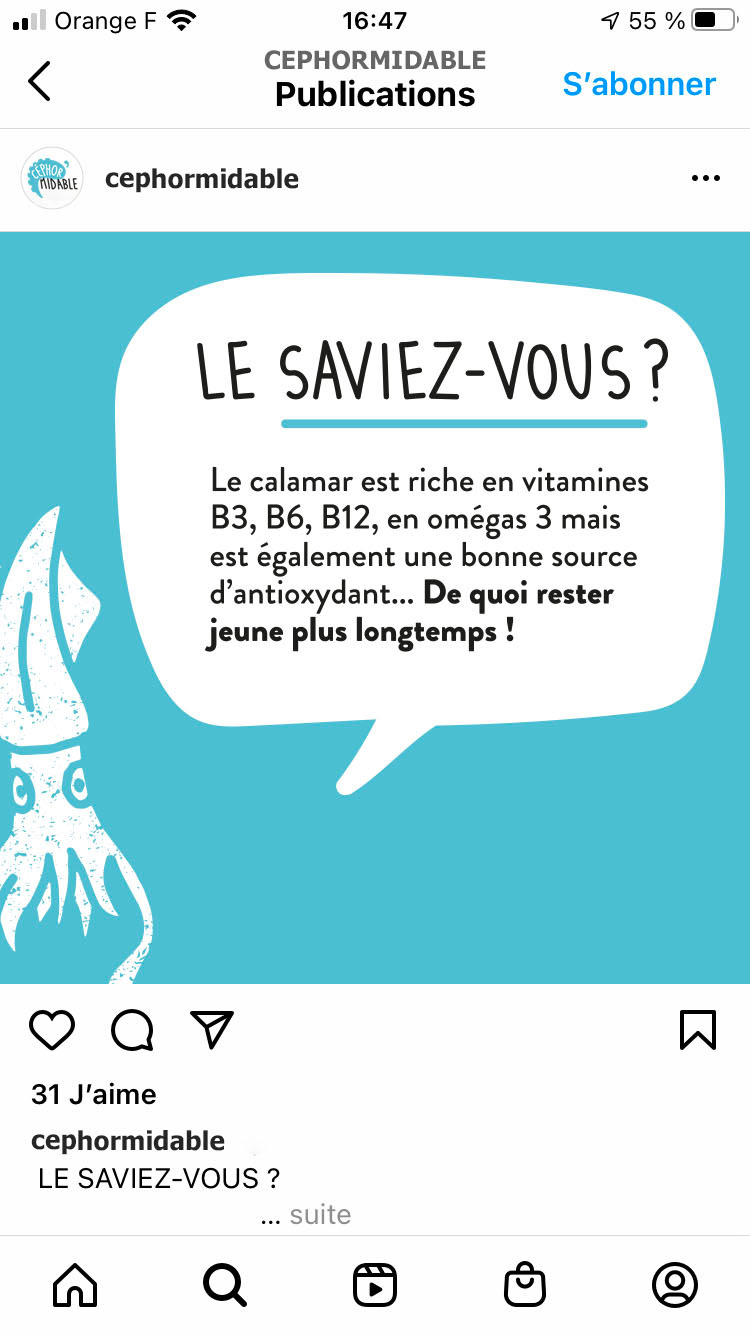

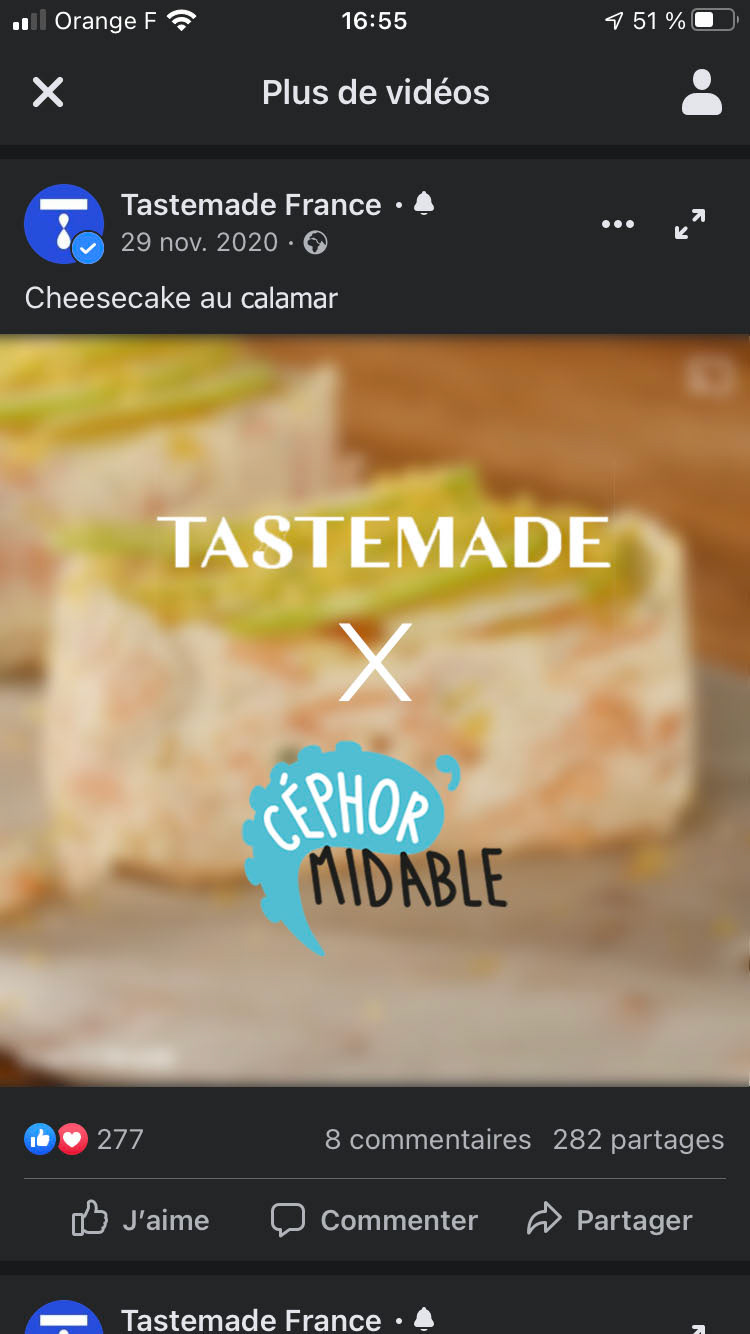
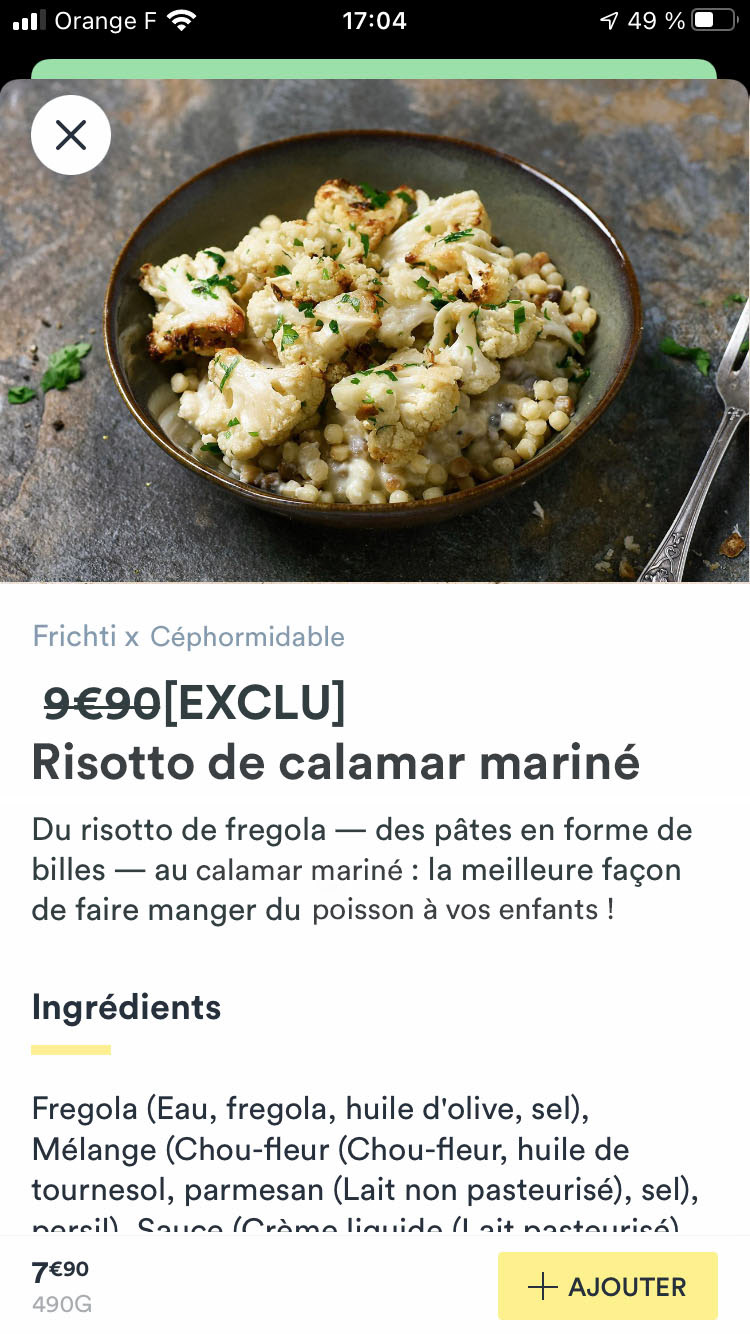
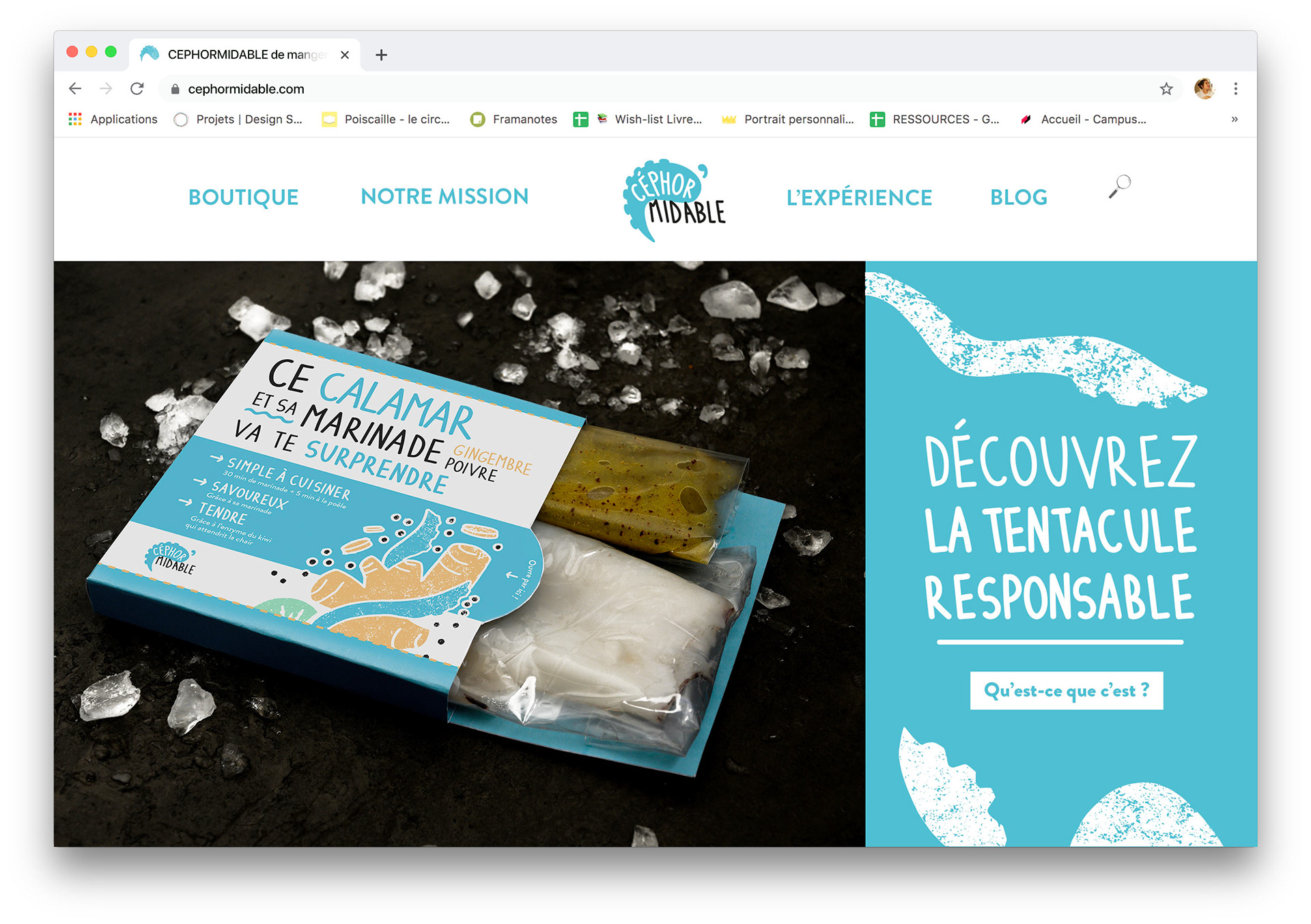
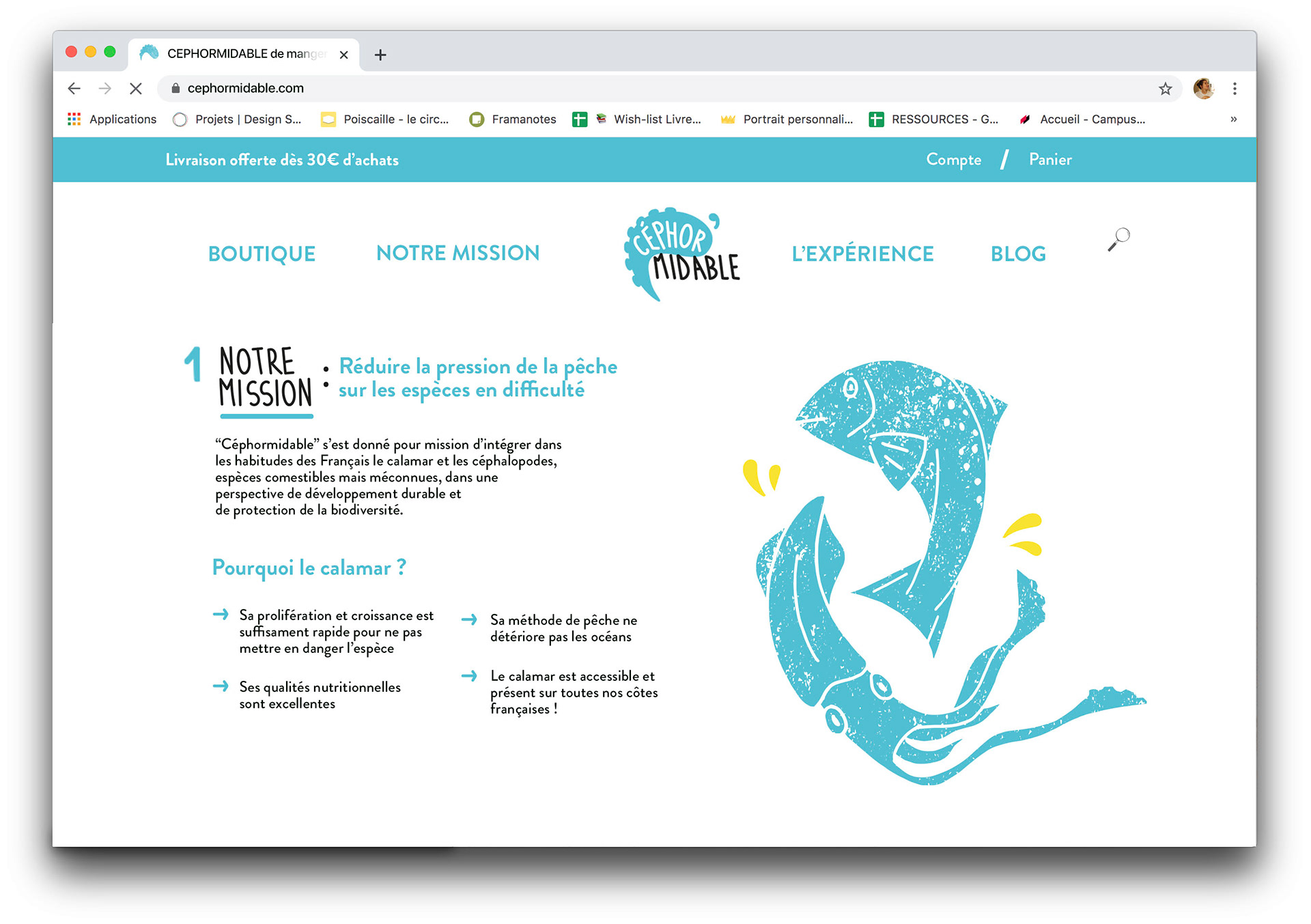
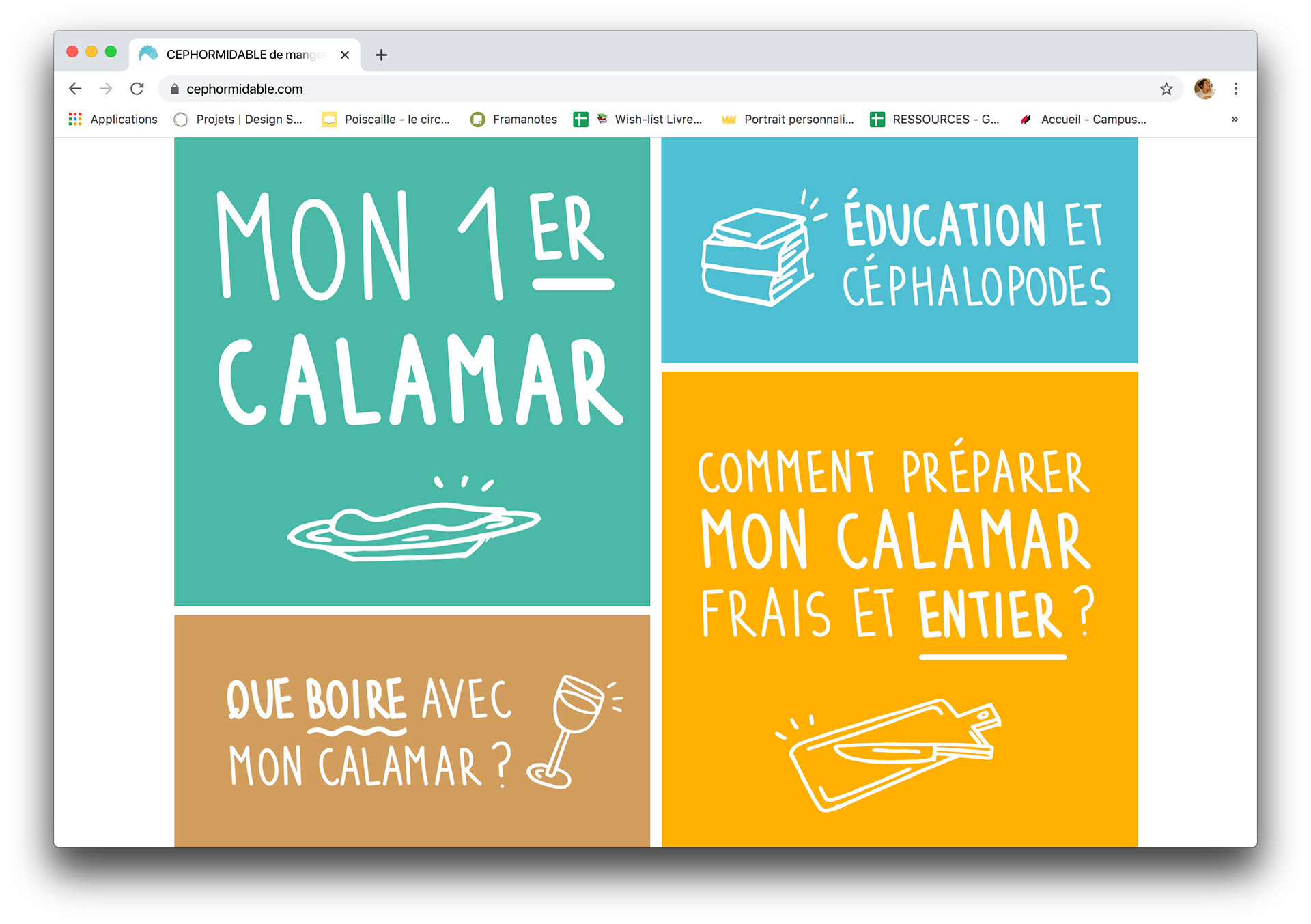
In order to have the "Céphormidable" brand on the market throughout the year and accentuate the food diversification, a product range around octopus (during autumn) and another on cuttlefish (during spring) are envisaged. However, these species do not require the same preparations and will need suitable solutions.
The project remains ongoing: I want to explore deeper the overfishing problem and its translation around uses, pedagogy, communication etc. And push innovation further on the packaging (information and materials).
The little +!
A real innovation project and concrete conceptualisation. For the end of my Master’s degree, I was able to work on an issue that was close to my beliefs and to deeply get engaged in the process.